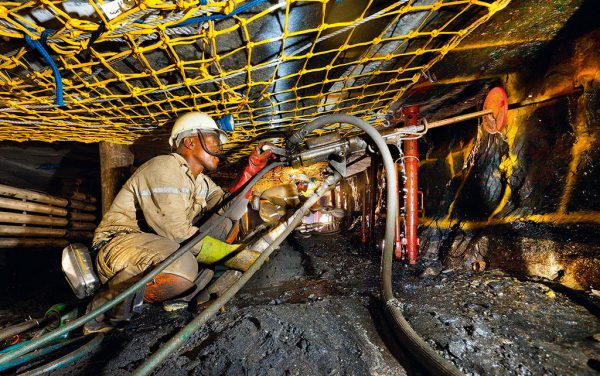Today Corruption Watch (CW) launched its 2018 Mining Royalties Research Report, highlighting the complexities and challenges in the management and distribution of mining royalties to people living in mine-affected communities, the majority of whom remain without any tangible benefits.
Since 2004, South African law has decreed that mineral and petroleum resources belong to the people of South Africa, and the state must act as a custodian of these resources. In partnership with the Open Society Foundation, CW embarked on a project to examine the history and evolution of South Africa’s mining royalties system, with the aim of facilitating and improving transparency and accountability in the distribution of these funds to communities.
The CW team conducted research into two unique systems of community royalties administration, the Lebowa Trust in Limpopo province, and the development accounts in the North West by the Bakwena ba Mogopa community. Although both systems of administration have been largely discontinued, it was important to study those systems and their evolution into an equity sharing form of revenue, in order to understand how and why the problems occur in revenue management, with a particular focus on corruption vulnerabilities and key risk areas.
The plunder of mining royalties may be the most appalling tale of corruption and maladministration in a country where such tales abound
The key risks identified include lack of adequate community engagement, the involvement of traditional leadership, mining companies entering into revenue-sharing agreements with select members of the community, and the role of provincial government. The research involved interviews and engagements with community members – CW also documented specific case studies which brought to light some of the widespread abuse, corruption and unethical practices that have filtered into the mining royalties system over the years. Findings showed that in both Limpopo and North West communities, the normal course of administration had been compromised from the outset.
David Lewis, executive director of Corruption Watch, commented: “The plunder of mining royalties may be the most appalling tale of corruption and maladministration in a country where such tales abound. It involves huge sums of money stolen from some of the most poverty-stricken communities in the country. And unlike the stories we read about and hear about every day, it is largely happening under the radar precisely because the affected communities have no voice.”
The report also reviews existing legislative and policy frameworks intended to manage and administer payment of royalties to communities where mining operations are taking place on community-owned land. These involve the mining companies operating within traditional community boundaries, provincial government, the royal family and the traditional council, all of whom play a key role in ensuring that communities are properly compensated.
While the findings in the report paint a depressing picture of misappropriation and maladministration of mining royalties in mining-affected communities, the challenges for these communities are real and in need of urgent resolution. It will require a multi-pronged approach to start overhauling the sector to ensure that impoverished communities finally benefit from the investment that is rightfully theirs.
Corruption Watch provides a range of recommendations that could start to address the gaps in the system that make widespread looting and corruption possible, including the establishment of mechanisms to address those gaps and create a platform for communities to finally benefit from mining on their land.
As recent resistance in mining-affected communities demonstrates, these communities are beginning to make their voices heard
Among the recommendations are: the adoption of a mining royalties best practice guide, a proper monitoring and evaluation system that penalises transgressors, support for communities to strengthen their negotiating position, and greater collaboration with civil society to help build capacity. In addition, CW calls for better consultation strategies, mechanisms requiring audited statements from traditional councils, community trusts and mining houses, changes to the governance and composition of traditional councils, greater access to and transparency regarding financial documents, and mechanisms to limit political interference.
It is imperative that all stakeholders, including the communities themselves, take greater responsibility for addressing the needs of mine-affected communities, in the quest to support the development of impoverished communities living on land containing vast reserves of mineral wealth.
As recent resistance in mining-affected communities demonstrates, Lewis added, these communities are beginning to make their voices heard. “Our hope is that this report will help amplify their courageous efforts to right some of the most appalling wrongs that we have encountered.”Corruption Watch





